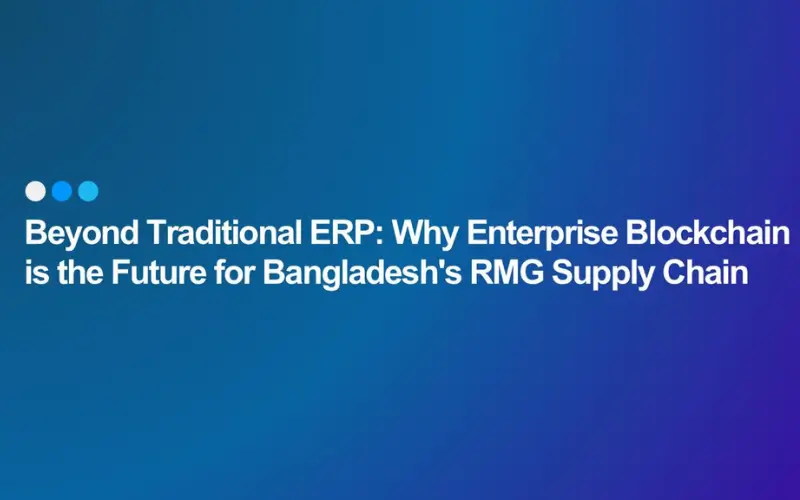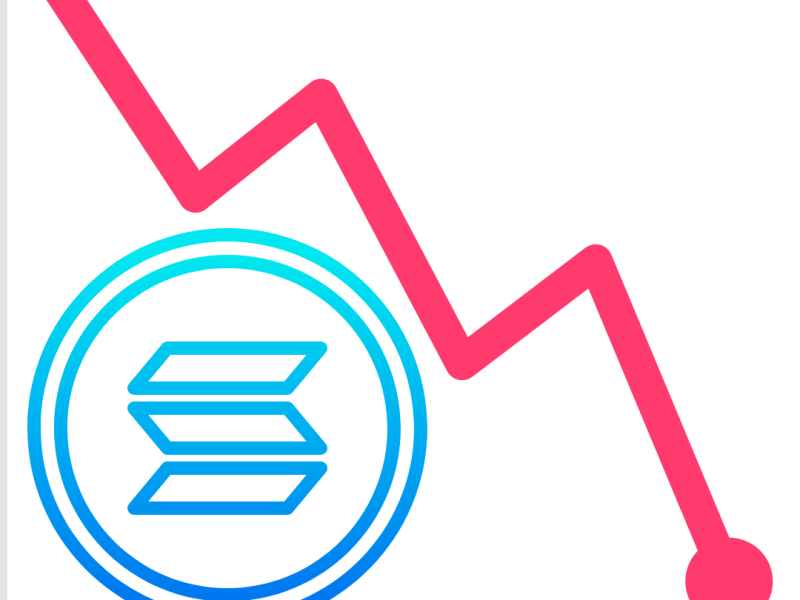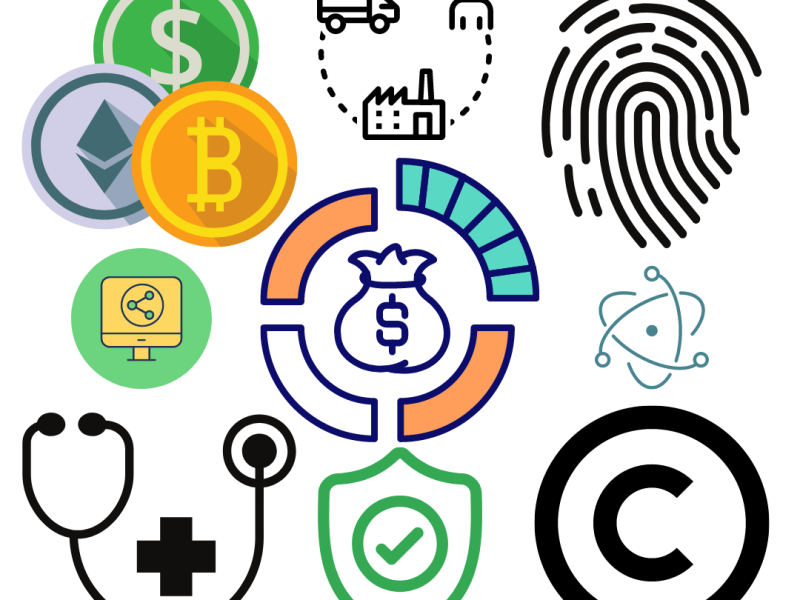Bangladesh’s Ready-Made Garment (RMG) industry stands as a global powerhouse, second only to China in apparel exports. Contributing a staggering 80% of the nation’s annual exports and 15% of its GDP, this sector is the lifeblood of the economy. However, with global competition intensifying and consumer demands for transparency and ethical sourcing on the rise, traditional operational frameworks are facing unprecedented pressure. While Enterprise Resource Planning (ERP) systems have long been the backbone of RMG operations, a new technological paradigm is emerging that promises to elevate the industry to new heights: enterprise blockchain.
For ERP solution providers in Bangladesh’s RMG sector, understanding this shift isn’t just about staying current; it’s about identifying the next frontier of value creation for your clients. This article delves into why enterprise blockchain offers a distinct upper hand over conventional ERP solutions, particularly in enhancing product traceability and authenticity within the complex RMG supply chain.
The Limitations of Traditional RMG ERP Solutions
Existing ERP systems have undeniably revolutionized efficiency within individual enterprises. They centralize data, streamline processes like inventory management, production planning, and financial accounting. However, their inherent architecture presents significant limitations when it comes to the multi-party, global nature of the RMG supply chain:
- Data Silos and Lack of Interoperability: ERPs are typically designed for internal operations. When information needs to flow across different organizations from raw material suppliers to manufacturers, logistics providers, and retailers data often gets stuck in silos. This leads to manual data entry, delays, and a high potential for errors.
- Limited Transparency and Trust: In a traditional setup, each party maintains its own records. Verifying information across the supply chain requires extensive audits and trust-based relationships, which can be time-consuming and prone to manipulation. This opacity makes it difficult to track a garment’s journey from fiber to finished product.
- Vulnerability to Data Manipulation: Centralized databases, while efficient for internal control, can be susceptible to unauthorized alterations. This poses a significant risk to the authenticity of product information, especially concerning ethical sourcing, quality control, and compliance.
- Inefficient Dispute Resolution: Without a single, immutable source of truth, resolving disputes related to product origin, quality, or delivery can be protracted and costly.
- Reactive Problem Solving: Identifying the root cause of issues like quality defects or delays often becomes a reactive process, as real-time, end-to-end visibility is lacking.
Competitive Analysis: RMG ERP vs. Enterprise Blockchain
To truly understand the “upper edge” that enterprise blockchain offers, it’s crucial to conduct a direct comparison with the capabilities of current RMG ERP solutions. While both aim to manage business processes, their fundamental architectures lead to vastly different outcomes in a multi-organizational supply chain context.
Key Comparison Points:
| Feature/Capability | Traditional RMG ERP Solutions | Enterprise Blockchain Solutions |
| Data Management | Centralized, proprietary databases. Data owned by individual entities. | Decentralized, distributed ledger. Shared, synchronized data across participants. |
| Data Integrity | Susceptible to internal manipulation or errors. Audit trails can be altered. | Immutable records. Cryptographically secured, tamper-proof. |
| Transparency | Limited to internal operations or bilateral data sharing. Opacity across the supply chain. | High transparency for authorized participants. Full visibility of product journey. |
| Trust Mechanism | Relies on bilateral agreements, contracts, and periodic audits. | Trustless environment; trust is inherent in the technology (cryptography, consensus). |
| Interoperability | Challenging across different companies/ERPs; requires complex integrations. | Designed for multi-party collaboration; easier, standardized data exchange. |
| Authenticity | Difficult to verify product origin or ethical claims without extensive manual checks. | Verifiable origin and claims through immutable records and digital identities. |
| Efficiency | Optimized for internal processes. Manual reconciliation for external data. | Automates verification and transactions (Smart Contracts); reduces manual effort. |
| Cost of Verification | High due to manual audits, third-party checks, and dispute resolution. | Lower long-term verification costs due to automated, trusted data. |
| Scalability (Supply Chain) | Scales well internally, but struggles with complexity across many external partners. | Designed for network effects; scales efficiently with increasing participants. |
| Security | Vulnerable to single points of failure or centralized cyberattacks. | Distributed security; no single point of failure, enhanced resilience. |
Where Blockchain Excels:
The competitive analysis clearly shows that while ERPs are masters of internal process optimization, they fall short in areas critical for modern, global supply chains: trust, transparency, and immutable record-keeping across disparate entities.
- Shared Single Source of Truth: Blockchain creates a “golden record” that all participants agree upon, eliminating discrepancies and the need for constant reconciliation. This is a fundamental shift from each company maintaining its own version of the truth.
- Automated Trust (Smart Contracts): ERPs manage transactions; blockchain can execute them automatically based on predefined conditions, without intermediaries. This is a game-changer for payment terms, compliance checks, and quality gates.
- Consumer-Facing Transparency: ERP data is typically for internal use. Blockchain can securely expose relevant, verifiable data to end-consumers, fulfilling the growing demand for ethical sourcing and product journey information.
- Network Effect: The value of an ERP is largely internal. The value of a blockchain network increases exponentially with each new participant, fostering a truly collaborative ecosystem.
The Blockchain Advantage: A Paradigm Shift for RMG
Enterprise blockchain, a distributed ledger technology, directly addresses the core challenges faced by traditional ERPs in a multi-stakeholder environment. Its fundamental properties offer a transformative edge for the RMG industry:
1. Unprecedented Traceability and Transparency
- End-to-End Visibility: Unlike fragmented ERP data, blockchain creates a shared, immutable record of every transaction and event across the entire supply chain. From the origin of cotton, to dyeing, cutting, stitching, and shipping, each step is recorded as a block in the chain.
- Real-time Data Flow: As data is added to the blockchain, it’s instantly visible to all authorized participants. This real-time flow of information eliminates delays and provides an accurate, up-to-the-minute picture of the supply chain.
- Enhanced Consumer Trust: Consumers can scan a QR code on a garment and instantly access its journey, including supplier information, certifications, and even energy sources used in production. This level of transparency builds immense brand loyalty and trust.
2. Guaranteed Authenticity and Immutability
- Immutable Records: Once data is recorded on a blockchain, it cannot be altered or deleted. This “write-once, append-only” nature ensures the integrity and authenticity of all information, from ethical sourcing claims to quality control checks.
- Fraud Prevention: The cryptographic security of blockchain makes it virtually impossible to counterfeit products or falsify origin data. This is crucial for combating the rampant issue of fake goods and ensuring compliance with international standards.
- Verifiable Certifications: Certifications (e.g., organic cotton, fair trade) can be tokenized and recorded on the blockchain, providing instant, verifiable proof of compliance to all stakeholders.
3. Streamlined Operations and Efficiency
- Smart Contracts: Self-executing contracts stored on the blockchain automate agreements and payments when predefined conditions are met. For instance, payment to a supplier can be automatically released once goods are verified as received and inspected. This reduces administrative overhead and payment delays.
- Reduced Manual Processes: By automating data capture and verification, blockchain significantly reduces the need for manual data entry and reconciliation, minimizing human error and boosting operational efficiency.
- Improved Collaboration: A shared, trusted ledger fosters greater collaboration among supply chain partners, as everyone operates from the same, verifiable set of facts.
4. Enhanced Compliance and Risk Management
- Regulatory Adherence: Blockchain provides an auditable trail that simplifies compliance with complex international regulations regarding labor practices, environmental standards, and product safety.
- Proactive Problem Identification: With real-time traceability, issues like quality deviations or bottlenecks can be identified and addressed much faster, transforming reactive problem-solving into proactive risk management.
- Stronger Brand Reputation: Demonstrating a commitment to transparency and ethical practices through blockchain can significantly enhance a brand’s reputation in the global market.
Enterprise Blockchain in Action: A Practical Outlook for RMG Bangladesh
Imagine a scenario where a garment manufacturer in Bangladesh sources fabric from a local mill, buttons from China, and thread from India. With an enterprise blockchain solution:
- Raw Material Tracking: Each batch of fabric, buttons, and thread is assigned a unique digital identity on the blockchain.
- Production Milestones: As these materials move through cutting, stitching, and finishing, each stage is recorded, along with details like machine IDs, operator IDs, and quality checks.
- Logistics and Distribution: Shipping details, customs clearances, and delivery confirmations are added to the immutable ledger.
- Consumer Access: A consumer in Europe scans a QR code on their “Made in Bangladesh” shirt and instantly sees the entire journey, verifying its authenticity and ethical production.
This level of granular detail and verifiable trust is simply not achievable with traditional, siloed ERP systems alone.
The Role of ERP Solution Providers in This Transformation
For ERP solution providers serving the RMG industry in Bangladesh, this presents a monumental opportunity. Instead of viewing blockchain as a replacement, consider it as a powerful enhancement to existing ERP infrastructure.
- Integration Specialists: Become experts in integrating enterprise blockchain platforms (like Hyperledger Fabric or Ethereum-based solutions) with existing ERP systems. This allows clients to leverage their current investments while gaining blockchain’s benefits.
- Consultative Partners: Guide RMG businesses on how to best implement blockchain for specific use cases, such as supply chain traceability, ethical sourcing verification, or combating counterfeiting.
- Innovation Leaders: Offer cutting-edge solutions that position your clients at the forefront of global transparency and sustainability trends, giving them a significant competitive advantage.
Seizing the Future of RMG with Blockchain
The global RMG industry is at an inflection point. The demand for transparency, authenticity, and ethical production is no longer a niche concern but a mainstream expectation. For Bangladesh’s vital RMG sector, embracing enterprise blockchain is not just a technological upgrade; it’s a strategic imperative for sustained growth, enhanced competitiveness, and building unparalleled trust with global consumers and partners.
ERP solution providers in Bangladesh have a unique opportunity to lead this transformation. By understanding the profound advantages of enterprise blockchain over traditional ERP limitations, you can empower your RMG clients to navigate the complexities of the modern supply chain, secure their brand reputation, and unlock new avenues of efficiency and profitability. The future of RMG is transparent, authentic, and powered by blockchain.
Author: Salauddin Ahamed Sagar




